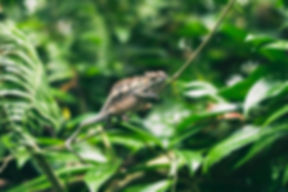My name is Semita Rema. I am from the Garo Christian community in Thanarbaid village. I am 58 years old. My husband, Monuj Nokrek, is a farmer. I have three sons and one daughter. My oldest son has completed a diploma in nursing, my middle son owns a tea stall and my youngest son is a driver. My daughter is a garment worker.
I am working as a supervisor in the Kailakuri Village Health Program (VHP). But I have also worked as an outpatient and inpatient paramedic over the years. I received training on family planning in Jalchatra and started sharing awareness of this issue in the villages.
Before I started work here, I came to know about Dr Bhai’s Thanarbaid clinic from a few of our neighbours. One day I visited the clinic as a patient. Later I told Dr Bhai I wanted to be involved in the clinic. In June 1988, Dr Bhai employed me as kitchen-in-charge because of the lack of staff. I worked in that position for one and a half years. At that time there were few staff in the VHP. Because of this Dr Bhai sent me to the villages with Nipuni Rema, so I could learn about VHP work, how to write weight charts, how to take children’s weight, and how to teach people, especially mothers in the villages. But this staff member left the project and went to Comilla. I hadn’t finished learning about the weight chart and family planning related matters. So later on, Dr Bhai taught me all of these things.
When I started working in the VHP, the primary treatment service wasn’t so developed. There were few village programme staff. After the village staff started going to villages regularly, local people started getting primary treatment services. At that time, most village people were superstitious. The primary treatment service has increased people’s awareness a lot. Before, they had little knowledge about saline and diarrhea. They didn’t even know how to prepare saline. They were not aware of how to keep their children clean. When their babies got sick, they could not give them primary treatment. But now days they know about these things quite well. Superstitions have reduced greatly.
Two or three months after I started working in the villages, I went on Christmas holidays. While I was on holiday I came to know about a one-year-old child in Jalichira village, who had diarrhea. After hearing about the child, I visited him and found that he was in really a serious situation. I told the child’s grandparents that the child was sick and needed to go hospital. But they wanted to arrange puja (a form of worship) for the child, so that he would be cured (as they believed in superstitions). The child became severely dehydrated. Then I took him to the hospital forcefully. After seeing the child Dr Bhai told me that we probably couldn’t save him. But fortunately, his condition gradually improved after we provided IV saline. The child’s grandparents were so happy. Dr Bhai told me that if I was not there the child might have died. His was Bapon Rema. He is now 23 or 24 years old. He is married and has two children.
Another story is from Chunia village. I can’t remember the year exactly; I was supervising Nilima (another VHP staff). We visited a house where a woman’s baby was delivered by a midwife of the village. Unfortunately, the child stopped breathing suddenly. They thought that the child had died. After entering the room, I saved the child by breathing into his mouth.
As a health staff, working in the project, I have benefited not only financially but also by learning about health prevention and treatment. I have taught my grandsons and daughters about the importance of cleanliness and sanitation. Besides, there are three types of food that we always try to eat at home, which are carbohydrates, proteins, vitamins and minerals.
I personally think that if the Kailakuri project did not exist, poor patients would have had great difficulty in getting treatment. Because of their poverty, poor patients can’t afford treatment in hospitals or private clinics. There are many poor patients who are still alive and taking treatment from this primary health care centre. I do hope and pray that it will continue on in the future as it is now. I would like to share early Christmas greetings with all of you.

